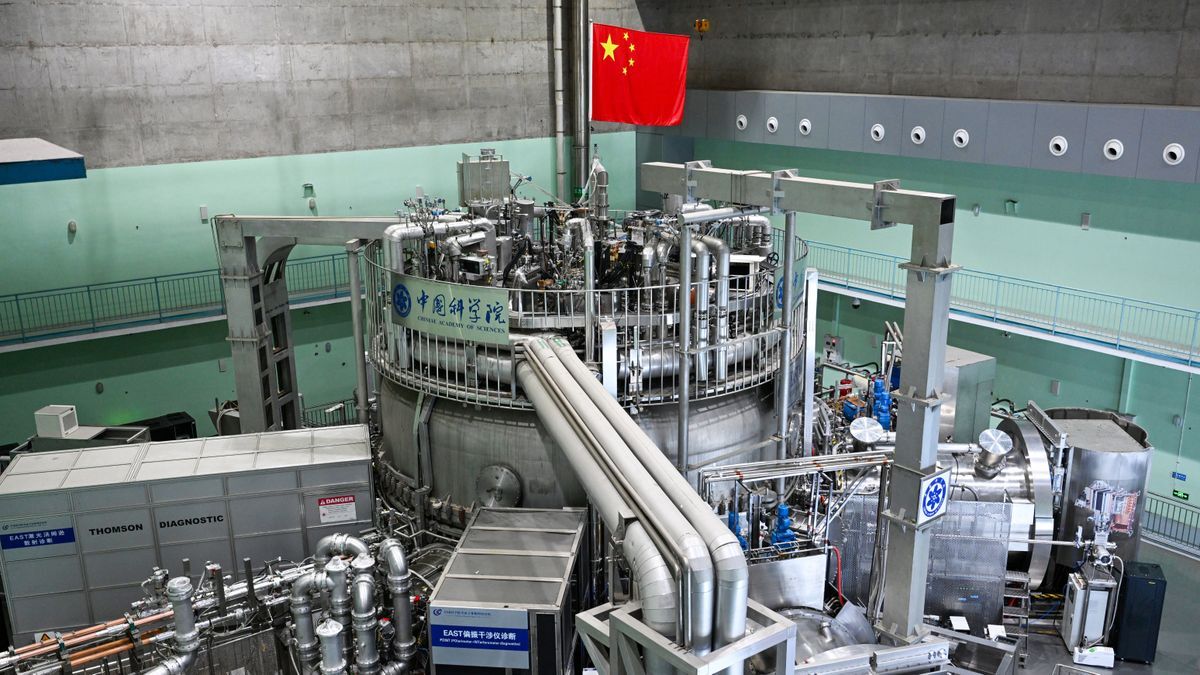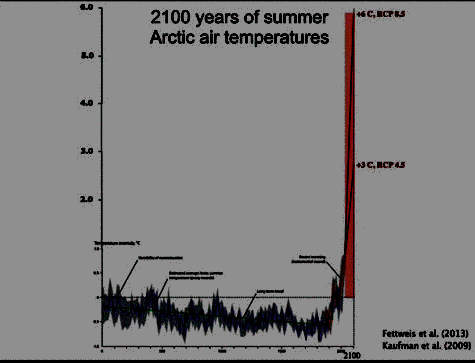Tony Stark was able to build this in a cave!
With a box of scraps!
We’re not Tony Stark, sir.
Yeah, well, you know, that’s just, like, your opinion, man.
Yeah, but Hawk could ride those pipes way better.
Also, Tony Hawk is a goddamn excellent game!
Dare I say that it was a pro skater too!
Not to mention that the guy in those games looks really similar to Tony Hawk (an ex professional skater), what a coincide!!
That is one technology that I don’t care if China steals secrets to make it happen faster.
No need!
The data gathered by EAST will support the development of other reactors, both in China and internationally. China is part of the International Thermonuclear Experimental Reactor (ITER) program, which involves dozens of countries, including the U.S., U.K. Japan, South Korea and Russia.
If we were a smarter society, we’d end our stupid cold war with them and cooperate.
If they were a more humane society, we likely would.
More humane like Nazi-America, or more humane like Warcrimes-Russia? Description unclear, please clarify.
More humane like the best of us wish to be and the majority of us never will be
More humane as in respecting human rights I suppose
Is there a state that is not disrespecting human rights ? I for one haven’t heard of any.
Degrees in hell maybe.
deleted by creator
andorra?
To clarify, what you’re doing is “what-aboutism”. Asking China to be more humane is not a comment on anything but China being more humane.
They weren’t just asking China to be more humane, though. They were suggesting that China doesn’t deserve our cooperation because they are inhumane, which implies we have the moral high ground and is explicitly hypocritical. It isn’t whataboutism to point out hypocrisy.
There’s a lot of assuming, implying, and suggesting in that take. The original just said if they were more humane we would work with them.
You don’t at all see how that implies moral superiority? Or are you just giving them the benefit of the doubt?
The problem is holding China to a higher standard than we hold ourselves to.
China could stand to be more humane, but it wouldn’t make the US cooperate with them.
Honestly China might start looking moderate compared to what I expect our new Dear Leader to do in the coming years.
Try to read up and understand what whataboutism means. Because you clearly didn’t get the point of my comment.
You brought up other societies as compared them to us. It’s the definition of what-aboutism, just read up on it again to make sure.
Is the argument here that China isn’t worthy of the United States’ cooperation? We here in the US need to get over ourselves and stop acting as if we have the moral high ground over everyone else. There are a lot of things about the US that are far from humane, and we do cooperate with countries that engage in far worse, often on our behalf. Our adversarial disposition towards China has nothing to do with human rights and everything to do with geopolitics.
Yeah more humane like Israel… America has been installing dictators all around the world for decades what are you talking about? You think America cares about humanity? You cant even birth a child without a $10,000+ bill.
America cares about moneyyyyy and nothing more
We topple democratically-elected leaders because it suits our economic plans. People downvoting the above comment don’t know shit about history. And that’s because our schools don’t accurately teach it.
More like if they were willing to embrace capitalistic western values and bend over for America whenever we’re feeling frisky
Thinking that china isn’t capitalist just because the ruling party has communist in the name is funny
Never said they weren’t. Just that it doesn’t align with capitalistic western values.
Post-scarcity society def scares capitalists.
im pretty sure almost unilaterally, every country would like the solution to near infinite energy regardless. its extremely vital if as a species, ever want to start a colony outside of earth.
the only people against it would be those in the pocket of other forms of energy monetary wise.
Preach.
While neat, this is not self-sustaining — it’s taking more energy to power it than you’re getting out of it. (You can build a fusion device on your garage if you’re so inclined, though obviously this is much neater than that!)
One viewpoint is that we’ll never get clean energy from these devices, not because they won’t work, but because you get a lot of neutrons out of these devices. And what do we do with neutrons? We either bash them into lead and heat stuff up (boring and not a lot of energy), or we use them to breed fissile material, which is a lot more energetically favorable. So basically, the economically sound thing to do is to use your fusion reactor to power your relatively conventional fission reactor. Which is still way better than fossil fuels IMHO, so that’s something.
It seems like it’s probably too late.
Even if we crack fusion power today, I can’t see it being deployed cheaply enough and quickly enough to compete with solar/wind+batteries. By the time we could get production fusion plants up and ready to feed power into the grid, it’d be 2050 and nobody would be interested in buying electricity from it.
Even in a world already powered 100% by renewables, fusion is attractive for high energy applications. For a current example see training of LLMs. However there are Industries with immense power requirements like Aluminium smelting that could use fusion power as well.
So far humans have found applications for all energy they were able to produce.
Fusion would provide orders of magnitude more power than solar. There’s a limit on how much we can practically get from solar, fusion would allow us to exceed that.
Yeah, but there’s no prizes for producing way more power than we use. We’re not running out of space to put solar panels or batteries.
‘Too much power’ has never been an issue, and will likely not be an issue ever with solar. There are multitudes of technologies, especially in industry, that are currently impractical because they would consume too much energy.
We can already massively increase generation to meet the needs of those industries whenever we want. They’re impractical due to the cost of meeting their energy requirements, not because it’s impossible.
Unless fusion power plants are going to be free to build or last forever, they have the same practical limit as every other type of generation - they have to be paid for. It isn’t clear that fusion would be a huge step forward in cost per megawatt-hour.
The main attraction of fusion is near limitless clean energy generation. The corollary of near limitless is that per unit price will be extremely low. The tech is inherently scalable to larger reactors, and that means if you’re going to be building a reactor anyway, it’s easy to combine it with nearby industrial development plans to take advantage of it.
Bigger, more powerful fusion gear isn’t going to also be more expensive?
Lots of generation technologies scale, and costs fall as they do. That’s not something unique to fusion power.
What I would like fusion to do is power space ships
Why so you can spread the disease known as humanity and increased human suffering to near infinite levels?
Jk. Space would be fun.
I think if we figure out nuclear fusion there will be induced demand for energy, in applications that were previously infeasible: desalination via distillation instead of reverse osmosis, direct capture of CO2 from the atmosphere, large scale water transport, ice and snowmaking, indoor farming, synthesized organic compounds for things like carbon sequestration or fossil fuel replacement or even food, etc.
Geoengineering might not be feasible today, but if energy becomes really cheap we might see something different.
I’d even say that it would make it “easier” to generate elements that are rare on earth for aplication purposes.
The first example already sort of feasible is production (and storage) of Helium.
And if we master (in the far, far future) both fusion and fission, then we can make almost any element “with ease”.
Basically we would be able to do what the alchemist dreamed and be able to “turn stones to gold”.
But nowadays, one of our “new gold” are rare earth like Neodymium for making magnets
And there are other elements that are even rarer and would have massive applications only if they were little bit more abundant than they are now
Now, again, that would be only true in a far, far future if (and a big if) we can truly master both fusion and fission (what I actually want to mean is that my comment is basically an “hallucination” similar to those on r/futurology)
I would think that using fusion or fission for synthesizing elements is going to still be less efficient (among all resources, not just energy) than using the newfound abundant/cheap energy to extract those preexisting elements from mixtures that exist on Earth.
Take neodymium, your example. That’s pretty abundant in the Earth’s crust. It’s just that it’s energy intensive to extract it from the mineral formations that naturally occur. At that point it’s still probably much cheaper, energy wise, to separate a bunch of minerals into their constituent elements, rather than try to synthesize atoms through fusion and fission.
I kinda agree with you tho. It is way more realistically to have asteroid mining facilities before what I said in the previous comment
(And of course, earthly mining already exists and will get more efficient in the future anyways)
This seems like a pipe dream but I don’t disagree that it could open up some new applications
The specifics are a pipe dream but the general principle holds: if energy suddenly becomes more plentiful and cheaper by orders of magnitude, society will find a way to use that new plentiful resource in ways that we can scarcely imagine today. That’s always been true of new inventions, where much of the post-invention innovation comes in the form of finding new applications for a thing that has already been invented.
Indeed

Maybe for deep sea or space?
Long distance transmission creates enormous power wastage, and cities are rarely located in places ideal for large scale wind and solar. Fusion can help deliver power to urban centres, reducing the acreage needed for a solar farm.
There are also inland places in northern latitudes that benefit little from solar. Wind and fusion would be a great energy mix for those places.
Nah, it’d be quite useful for interstellar travel as but one example I’m helping with.
moar energy! there will never not be an application for energy production. specifically fusion has the benefit of being highly dense large scale production. which makes it attractive on a number of levels.
Economical energy production, sure, not any energy production. There is a reason we no longer burn wood to heat public baths.
I realize the science marketing of fusion over the past 60 years has been ‘unlimited free energy’, but that isn’t quite accurate.
Fusion (well, at least protium/deuterium) would be ‘unlimited’ in the sense that the fuel needed is essentially inexhaustible. Tens of thousands of years of worldwide energy demand in the top few inches of the ocean.
However that ‘free’ part is the killer; fusion is very expensive per unit of energy output. For one, protium/deuterium fusion is incredibly ‘innefficient’, most of the energy is released as high-energy neutrons which generates radioactive waste, damages the containment vessel, and has a low conversion efficiency to electricity. More exotic forms of fusion ameliorate this downside to a degree, but require rarer fuels (hurting the ‘unlimited’ value proposition) and require more extreme conditions to sustain, further increasing the per-unit cost of energy.
Think of it this way, a fusion plant has an embodied cost of the energy required to make all the stuff that comprises the plant, let’s call that C. It also has an operating cost, in both human effort and energy input, let’s call that O. Lastly it has a lifetime, let’s call that L. Finally, it has an average energy output, let’s call that E.
For fusion to make economical sense, the following statement must be true:
(E-O)*L - C > 0.
In other words, it isn’t sufficient that the reaction returns more energy than it requires to sustainT, it must also return enough excess energy that it ‘pays’ for the humans to maintain the plant, maintanence for the plant, and the initial building of the plant (at a minimum). If the above statement exactly equals zero, then the plant doesn’t actually given any usable energy - it only pays for itself.
This is hardly the most sophisticated analysis, I encourage you to look more into the economics of fusion if you are interested, but it gets to the heart of the matter. Fusion can be free, unlimited, and economically worthless all at the same time.
oh boy another economics dweeb who thinks they know what theyre on about. those were a lot of words for a false premise. There is no doubt that fusion can produce more energy than it costs to maintain. we have literal empirical examples of this occurring in nature. You forgetting a significant factor in your analysis: time.
The problem with fusion isnt the science behind its energy production. its the engineering behind the design of plants, unfortunately for fusion it suffers from being fairly unique in that its a high radiation, high heat domain which makes the engineering incredibly difficult to get funded and there isnt anything else comparable to piggy back off of. That’s currently your C value and those costs are one time. solar and wind also suffered from this for decades. fortunately those tech could piggy back off discovers in other domains.
The cost of fusion plants and the energy production they’ll eventually unlock will disappear soon as we figure out the containment issues, and we’re getting close. the reason you’re hearing about fusion more and more is because we had a break through in 2010 on superconductors allowing for stronger containment fields.
We’ve probably spent less than 500 billion globally on fusion research over the entire lifetime of the field. the ‘C’ value is actually remarkably low economically speaking for the return we’ll get.
I encourage you to seriously engage with the topic and not just read and regurgitate platitudes from popsci articles.
Solar and wind are nothing like fusion.
Educate yourself, but first maybe pause and spend a second to think that perhaps you aren’t the smartest person in the room and you shouldn’t begin a discussion by speaking down to someone.
When everything hard looks easy, it is a sign you don’t understand it as well as you think you do.
Just some advice for you as you grow up.
Oh child, you’re the one who walked into this conversation with a grade school take. Ive worked on software for these systems before i retired from the industry last year.
I never said solar and wind were anything like fusion beyond they’re all used to generate power and varying ranges of energy density per area. But I’m certainly better grounded than you in both the economics and ongoing challenges with fusion.
If you want people to take you seriously maybe don’t start the conversation with a grade school take on the situation and you wont be dismissed.
Helion has an interesting take on fusion reactors that generate power using electro magnetism and Copenhagen Atomics are trying to create Thorium reactors. I hope they will work better than the boiling they use in tocamac reactors
what an incredible achievement. rome wasn’t built in a day and real.science takes time and effort. so much effort by these scientists!
I’m so used to hearing that this technology is 10 years away, or whatever the old adage was, that i can’t believe we’ve been seeing actual progress on this front in the last few years. Maybe it will actually happen eventually!
Well, there’s been incremental progress all along. I remember reading about milliseconds being a big accomplishment at some point.
Also, it’s pretty heavily dependent on the exact plasma in question. One hot enough to do lots of fusion will probably be different, so this isn’t the finish line. Relevant XKCD.
It just took someone without a profit motive
Someone needs to bash these scicomm journalists over the head until they stop using the words “artificial sun”
Also, where’s the study? Is it even peer reviewed?
Meanwhile in America

Living in the UK I suspect you have the same problem we have. Plenty of people capable of doing all the impressive shit China is doing (science, infastructure, whatever) and all of them being starved of funding as all the money dissapears into gigantic blackholes of backroom deals where huge amounts of money are spent on vague things that never seem to materialize or even be adequately explained; but whatever they are they sure do generate enormous profits for the cronies of whoevers currently in power.
My country is in this comment and i don’t like it
Well at least here we can pretty easily see where the money goes by looking at the billions of dollars given to Israel and the military.
Literally has tons of the same kind or reactor, and Europe is working on one that might actually do practical things.
Anyone here calls paste glue?.. Yup, wrong country. And now we got a word that we can use to detect AI.
I just looked up glue eating gifs. And posted the funniest one
Forget artificial suns, let me tell you right now how to make an artificial moon:
- Be a robot.
- Pull down pants.
- Bend over.
- Point robo-crack towards recipient
- Artificial Moon.
I’m noticing in these comments that the tech bros that want to solve climate change by magical technological advances instead of using what we have had an interesting effect: some people on the other side have grown tired of the real technological advances that would actually help.
Can’t wait for my Trumper boss to bring this up at work again as “Did you hear China secretly replaced the sun?”
Good job scientists!
Meh, net gain is the point, long cycles well be useful for production. Useful, eventually. Cart before the horse, otherwise.
I’m studying Physics at the moment and Prof. gave us a printout of a textbook last week stating that the internal of the sun generates approximately 150 W / m³ on average. That’s about as much as a compost pile, so, not very much. The sun only generates enormous amounts of power because it’s so huge. In other words, reproducing fusion on Earth might actually not be very efficient.
Found this article
https://www.abc.net.au/science/articles/2012/04/17/3478276.htm
And it looks like it’s saying that the energy produced by nuclear fusion (which happens in the relatively small core) divided by the entire mass of the sun, gives you that low number.
Terrestrial fusion power plants are aiming to be sun cores, so that all the hydrogen they put in gets fused, and not just a few atoms here and there.
Why do people assume that scientists don’t sanity check themselves? Genuine question, no offense to the OC here.
“guys, I know we’ve been working on this for decades, but I’ve been going over this first-year textbook, and I have some bad news…”
Cause maybe they assume scientists are hyping things up like VCs for AI.
In a dishonest world, the honest would be mistrusted more.
It’s low in the core too, just not quite that low.
How does nobody else here know that we’re talking about artificially fusing some blend of deuterium or tritium? The sun fuses ordinary hydrogen at this point in it’s evolution - that’s why it’s a nice slow 10 billion year burn.
I’m pretty sure the reason for that is that the sun is actually mostly not hot enough to do nuclear fusion, but has to instead rely on quantum tunnelling. This makes the fusion rate much, much lower. Now while this is good, because otherwise, the sun would burn up far too quickly and kill all of us, it also explains the low power, or energy per time.
Source: Doing my master’s in cosmology.
Look up the etymology of the word “sophomore”.
Yeah that is not how that works
The sun is enormous, yeah, but fusion only really happens at the core. A very tiny fraction of the sun is doing the fusion, the rest jlgets heated up, makes gravity and such, bit doesn’t really do anything of interest energy wise.
Fusion creates a shit tonne more energy than 150w/cm3. Heck, you’ve never seen what a nuke does
No, OP is right - or rather, OP’s physics professor. There’s different kinds of fusion, though, and nobody’s suggesting we do the exact same kind here on Earth (we basically can’t).
Fusion creates a shit tonne more energy than 150w/cm3. Heck, you’ve never seen what a nuke does
That’s power density (Watts). Multiply by 10 billion years to get energy density.
Different kind of fusion. Don’t forget hydrogen bombs have been around for decades, right? They’re just not very controlled and harnessable.
To the sun’s credit, it’s 4.5 billion years in and it’s still got plenty of juice left to go.
You know instead of the artificial sun we could use the real one no? I still think fusion is a good investment on the skill tree but not for consumer energy. Also can someone explain why we use solar panels instead of mirrors that heat up water and spin turbines? Almost every other method of producing energy uses that and from my understanding its more efficient and probably cheaper.
Porque no los dos?
Why shouldn’t fusion not be good for consumer energy? If they find a way to produce electricity with it the grid doesn’t care who uses it.
Why don’t we use mirrors to heat water with sunlight and spin turbines with it? We do! But photovoltaic cells are more space efficient and have gotten really cheap. Also you can just plop them on almost any roof and call it a day. Also converting light to heat to electricity is kinda dumb when you can just convert it directly to electricity.
We also use the sun to make tap water warm.
Also can someone explain why we use solar panels instead of mirrors that heat up water and spin turbines? Almost every other method of producing energy uses that and from my understanding its more efficient and probably cheaper.
This is called concentrated solar power, and there are operating facilities representing less than 2% of total worldwide solar capacity (as of 2017): https://en.m.wikipedia.org/wiki/Concentrated_solar_power
In short, as with most things, the answer to “why don’t we do more” is that it’s more expensive than the alternatives. Because the “feedstock” (sunlight) is free, efficiency doesn’t matter much unless land is expensive. The complexity of these systems is also much greater than PV, leading to higher capital and operating costs.
The promise of concentrated solar is that it can serve as energy storage as well (the hot heat transfer medium can continue to heat water and generate power into the night) meaning it has greater potential for base load power than PV. Plus, I think power towers look damn cool.
IIUC the end goal, for any fusion reactor, is to heat up water and drive a steam turbine.
Imagine you could drive a steam turbine at zero cost. What happens if just keeping that turbine running costs more in upkeep than e.g. solar panels do overall?
Is there really much of an economic case for infinite energy on demand (and that is if fusion can be made to work in not just the base load case) if we have infinite energy at home already?
Even if not a single residential property gets hooked up to a fusion generator, there will still be an economic case for fusion, especially as you move away from the equator. Industrial applications require an enormous amount of energy, and with solar power having a hard limit on the amount of energy you can get from a square meter, you’d have to have square miles of panels and batteries to keep one plant going.
Fusion reactors don’t necessarily need to heat water. I’m aware of at least one company that is developing a power plant which primarily uses induction: https://en.wikipedia.org/wiki/Helion_Energy
The economic case for infinite power is that it is infinite power, Karen.
Not everything needs to be a fucking profitable business, god damn ferengi idiots.
I really feel the urge to correct the “infinite power part” because it hurts my soul as a (wannabe) physicist.
There exist no thing like infinite energy generator because energy is always conserved (well, there are some weird corner cases this isn’t true, but that is another lesson).
There are massive “transformators” of energy known as stars (like our Sun)which expel radiation in massive quantities thanks to its humongous size and will take billions of years until it grows into a giant red star and more billions of years until it explodes into a white dwarf (If I recall it correctly).
Billions or even “measly” millions of years is basically “infinite” for human lifespan, I agree.
But it still is finite.
Fusion won’t be “infinite” (billions nor even millions of years) because it will be basically a “microscopic sun”
We’d need something a bit bigger than Jupiter to get something closer to a “infinite-red-dwarf-energy-generator”.
And Jupiter’s diameter is around 10 or 11 Earths diameter, so it is something that is already a big massive for humans to do.
I’d say that photovoltaic cells for solar energy would be easier to make “infinite energy” becuse we are copying what the best “infinite energy users” (also known as plants) have been doing for millions of years.
Maybe they miss the sun because of all the smog in the air.

















